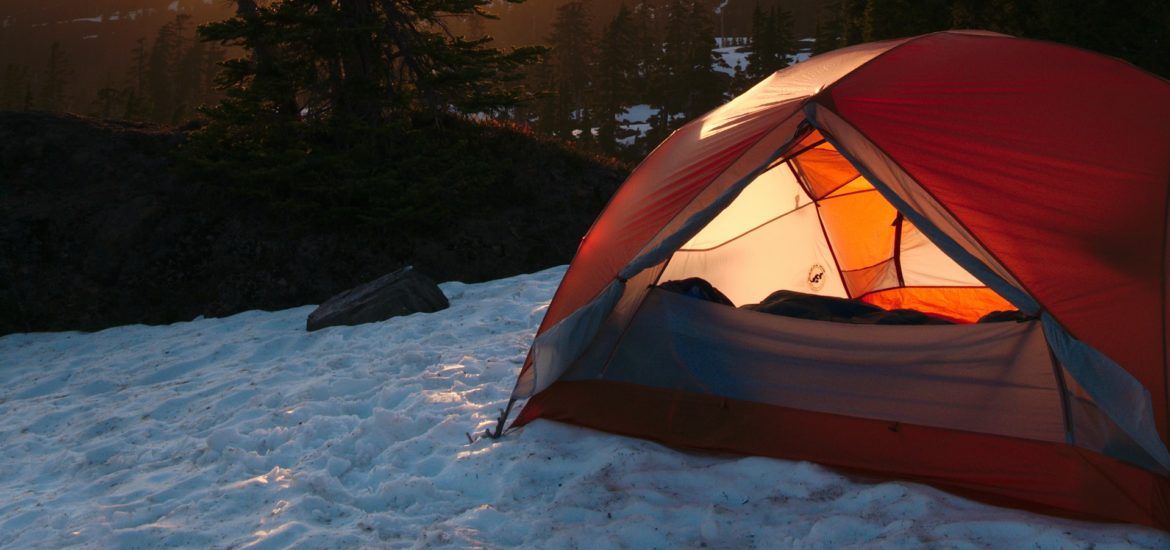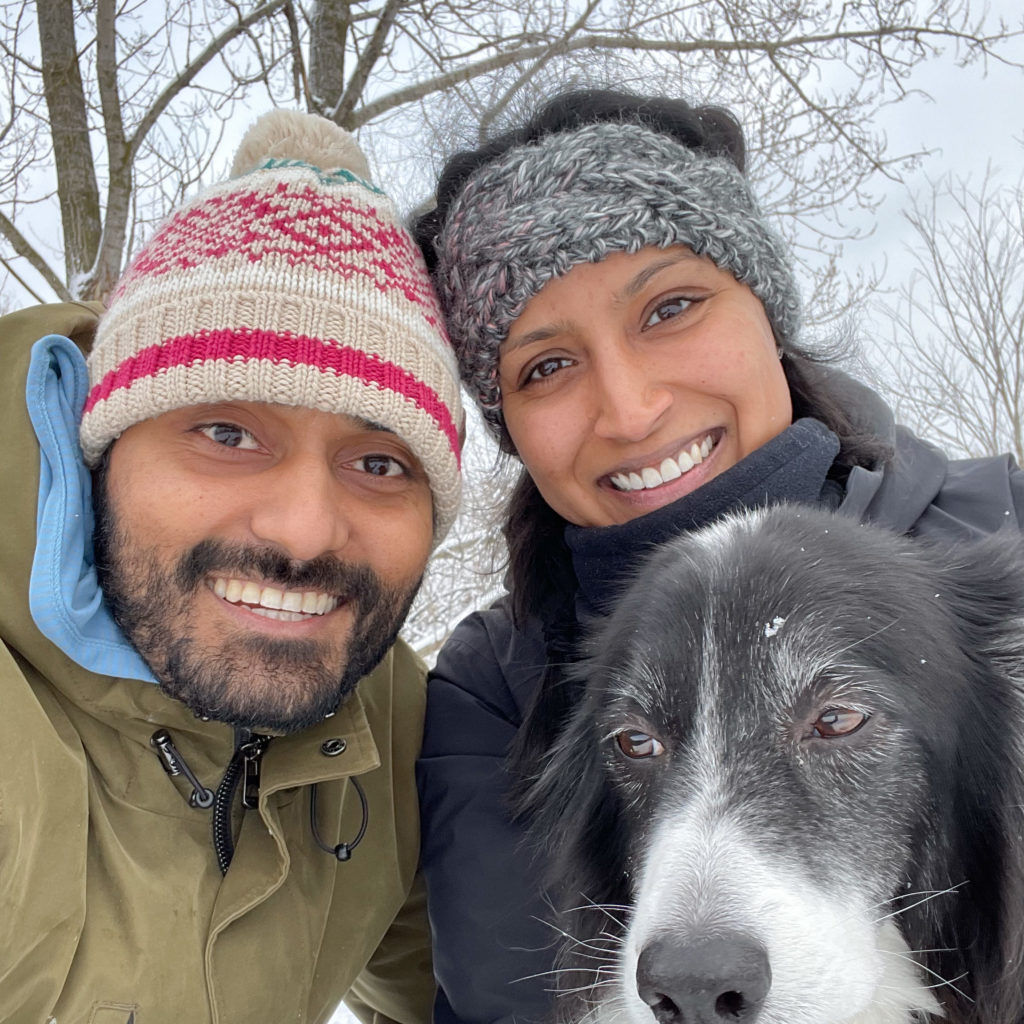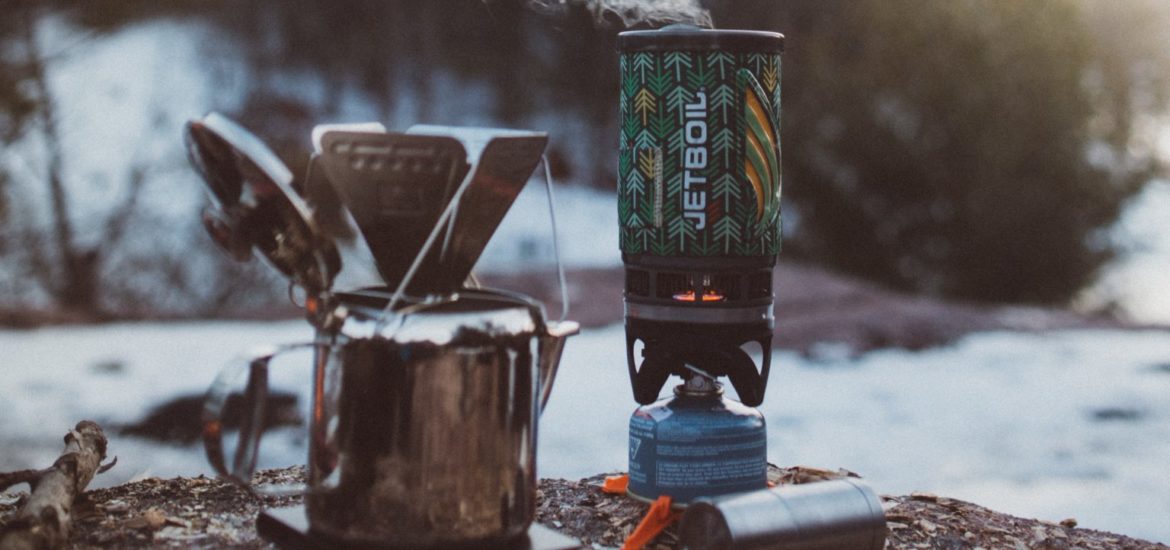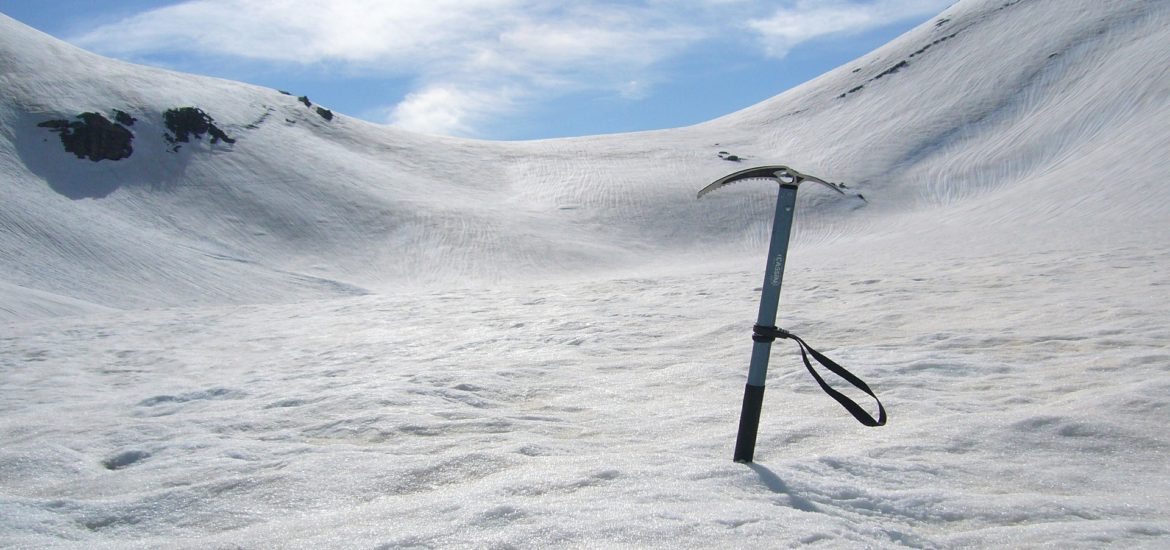With the right gear and know-how, winter camping can be an incredible way to experience the outdoors.
But, for the uninitiated, winter camping can seem pretty daunting. The frigid temperatures and an overall sense of limitations keeps many campers from even attempting to winter camp.
But, if you’re wanting to give it a try, here are 7 practical tips for winter camping you should consider.

1. Moisture Management Is Paramount
Managing moisture generated from your body in the form of sweat or condensation from breathing is ultra important when winter camping.
Any moisture that is not properly vented or wicked away can condense and freeze leading to rapid loss of insulation and warmth.
Balancing Warmth and Moisture with Clothes
When selecting clothes for winter camping, it’s important to know how different materials retain and expel moisture.
Some materials are fantastic at insulating you from the cold, but also trap moisture next to your body.
Merino wool is considered to be the best fabric to wear for winter camping. It’s durable, insulating, moisture-wicking, quick drying, and prevents odours!
Merino wool base and mid layers will keep you warm and dry.
Pro-Tip: Looking for clothes and layering information? Check out my complete clothing guide What Clothes to Bring Camping.
Air Flow in Tents
Just as managing moisture within your clothes is important, so too is managing moisture inside of a tent when winter camping.
Any moisture expelled from breathing as well as perspiration will condense in the cool air inside of a tent.
It might not seem like a lot, but overtime a substantial amount of water vapor can condense onto the sides of a tent. Eventually, water droplets form, collect, bead down the sides, and pool at the bottom of the tent. They can also rain down on you if the tent shakes.
And, once you start getting wet, you can start to chill much faster which can be dangerous. So, it’s important to channel away any moisture that might collect in a tent.
It might seem counter-intuitive, but opening vents and allowing for airflow actually helps keep the inside of your tent from becoming moisture-logged.

2. “Cold Challenge” Factor
Setting up a tent in ideal conditions (warm, dry, no wind) doesn’t take too long. However, in frigid conditions, with bulky gloves on protecting your hands from frostnip, setting up a tent can take much longer than normal.
Likewise, chopping firewood, cooking, opening a bottle to drink water, even walking from one point to another takes longer and is more difficult in the cold and snow.
This added time and effort for completing everyday activities is termed the “cold challenge” factor. It implies that during winter camping everything takes longer.
So, campers need to be aware of this added time and effort involved in doing even the most mundane things and the requirement to compensate.
- Perhaps that means refining an itinerary to allow for more camp set up and take down time.
- It might also mean modifying their gear and equipment to make it easier to operate and use things while winter camping.

3. Eating More Food, More Often
To keep your energy up during winter camping it’s important to eat more food, more often.
This is because during the winter, your body’s basal metabolic rate increases. Essentially, your body needs to work harder to maintain its core temperature while at rest compared to warmer conditions.
And to fuel this rise in metabolism, your body needs food more frequently.
So, during the planning phase of your winter camping trip, include additional snacks and meals to compensate for the anticipated increase in your caloric consumption.
Pro-tip: Personally, I tend it include 25% more calories to my daily food intake to ensure I have plenty of calories to burn while winter camping.
4. Need to Stay Active for Longer to Keep Warm
The best way to stay warm during winter camping is to stay active. Chopping wood, hiking, even doing jumping jacks can help you maintain your body temperature.
The body will actually naturally start to shiver if your temperature starts to drop. Shivering is an involuntary way to activate muscles to generate heat.
But, no matter how many layers you add, if you’re not moving you’re not generating a lot of heat!
So, keep active for longer in order to stay warm.

5. More Hazards Around Campsite
Snow & Ice Can Hide Dangers
Sharp Winter Equipment
Additional gear such as ice axes and crampons might be around which have sharp edges. Slipping and falling on these can puncture and tear other camping equipment and your skin.
So, it’s important to keep sharp equipment stored safely.
Skin Exposure to Cold
Prolonged exposure to cold temperatures coupled with windy conditions are hazardous to exposed skin.
Taking off gloves to use a knife, going to the bathroom, even opening a tent door can risk exposing your skin to injury.
Short exposure to the cold can lead to frostnip which isn’t severe and does not result in any permanent damage.
- The tell-tale signs of frostnip are numbness and a change in skin color, but a return to feeling and normal color once warmed.
Frostbite is far more severe and can result in permanent damage to skin.
- Frostbite occurs when the tissue under the skin is exposed to freezing temperatures for an extended period [Reference].
- Just like high temperatures burns, frostbite is rated in different “degrees”.
So, it’s vital that you protect all exposed skin and appendages including hands, feet, eyes, ears and your nose from excessive exposure to cold air and wind.
6. Waste Facilities are 200 ft from Bodies of Water
If you are winter camping next to a lake or river, chances are the waste facilities are located at least 200 feet (60 meters) away.
This is to ensure that human excrement is far enough away from bodies of water so as not to contaminate it.
This also means that any make-shift waste facilities or latrine you set up also has to be at least 200 feet away.
So, when you are winter camping, keep an eye out for water ways and then measure out an adequate distance away from them before you relieve yourself.
7. Take an “Intro to Winter Camping” Class
Personally, a great way I found to increase my confidence in the outdoors was by attending different outdoor classes and workshops.
Recently, I attended a free “Intro to Winter Camping” class offered at Mountain Equipment Coop (MEC). To my surprise, the class was completely filled by many newbie winter campers.
A lot of great, practical information was mentioned and shared by the instructor. More importantly, it gave everyone including myself added knowledge, understanding and confidence to give it a try.
So, I would encourage you to seek out and attend winter camping seminars and classes. And I hope that by listening to experts talk about their experience, you can be inspired to try it out for yourself… one day!
